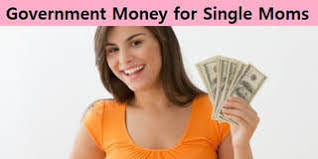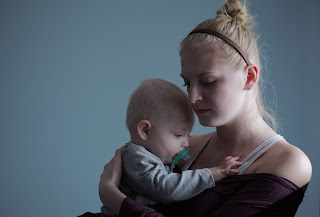How to Get Free Money For single mothers.
Whoever said “nothing in life comes free” didn’t take into account government programs that help people pay for things like college, day care and a new home. Most of these programs are funded by taxes, so technically you pay something, but they’re as close as you’ll get to get free money from the government.
Ways to Get Free Money For Single Mothers
Get help with utility bills
Need help paying your heating or phone bill? These programs may be able to help.
The Low Income Home Energy Assistance Program helps low-income households cover heating and cooling costs. Grants are issued via states, which receive funding from the Department of Health and Human Services. Each state sets its own eligibility requirements, including income levels. The Lifeline program offers discounted landline or cell phone service. Lifeline is an income-based program, so you must meet certain eligibility requirements to get free money for single mothers.Get Free Money For Single mothers For Child Care
The Child Care and Development Fund can help ease the burden for low-income families. Administered by the U.S. Department of Health and Human Services, the fund gives states, territories and tribes money to distribute to families to help pay for child care. Grants are income-based and typically cover care for children under 13. Find the Child Care and Development Fund contact for your state.
Recover unclaimed money
This isn’t so much free money as it is money owed to you. It could be a long-forgotten deposit paid to a utility company, a lost savings bond, unclaimed life insurance benefits or an uncased paycheck.
These unclaimed funds are turned over to the state when the owner can’t be located, often due to a clerical error or companies having an old address on file.
During the 2017 fiscal year, West Virginia doled out more than $12 million in unclaimed funds. Maine returned more than $18 million and Florida returned more than $313 million a record for both states.
Get down payment assistance
You want to buy a home but can’t afford a down payment. Enter state-based down payment assistance. These grants and loans help you cover the upfront costs of purchasing home grants and loans help you cover the upfront costs of purchasing a home
In Nevada, for example, prospective homeowners can qualify for a grant of up to 5% of their mortgage to put toward a down payment and closing costs. District of Columbia residents can qualify for a down payment assistance loan of up to 3.5% of their mortgage. The loan needs to be repaid only if you sell, refinance or vacate the property within the first five years.
Help isn’t reserved for low-income borrowers. Nevada’s grant program is available to those with an annual income below $98,500. The D.C. program caps income eligibility at just over $132,000.
Find tax credits for health insurance
The future of the Affordable Care Act is murky at best. But for now, the premium tax credits issued via the program are alive and well. Here’s how they work:
Individuals and families who buy coverage through the government’s health insurance marketplace can qualify for a credit toward their insurance premiums. The credit can be paid directly to your insurance provider, lowering your monthly payments, or paid out as a tax credit when you file your return. Get Free money for single moms as a tax benefit or for the health insurance.
Get Free Money For Single Moms For College Study
College grants, like the federal Pell Grant, can make it easier to pay for college. Students who are eligible for the Pell Grant could get up to $6,095 for the 2018-19 award year. The exact amount awarded is based on factors that include financial need, the cost of attendance and enrollment status. Students can apply for the Pell Grant by completing the Free Application for Federal Student Aid, or FAFSA. The application is also used to qualify for many state and institutional grants and scholarships.



